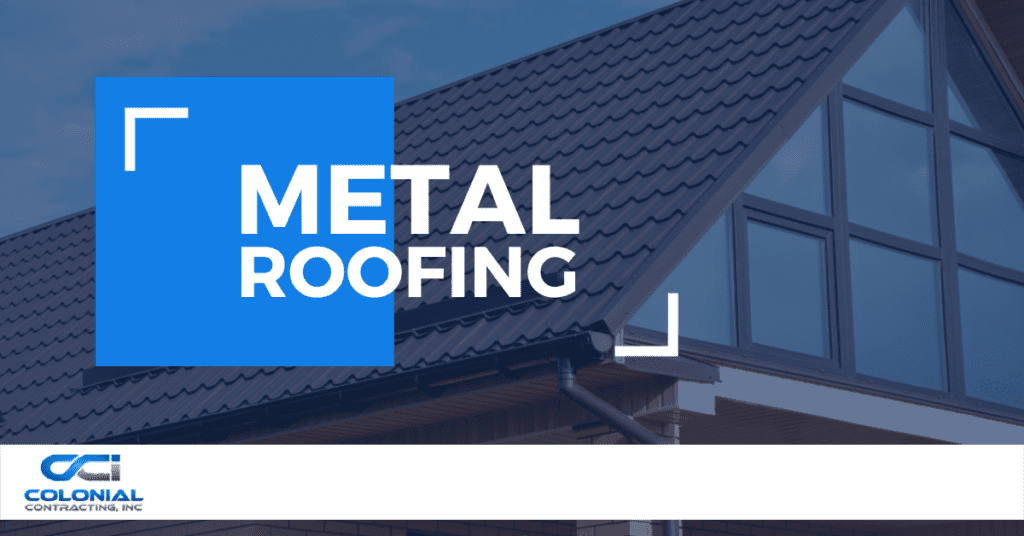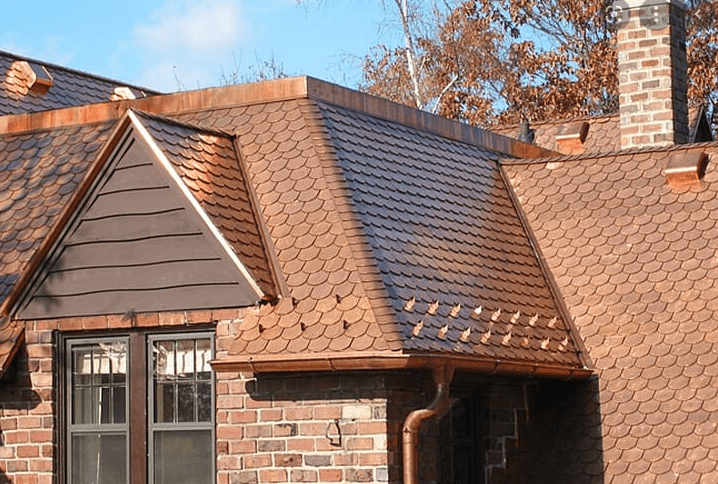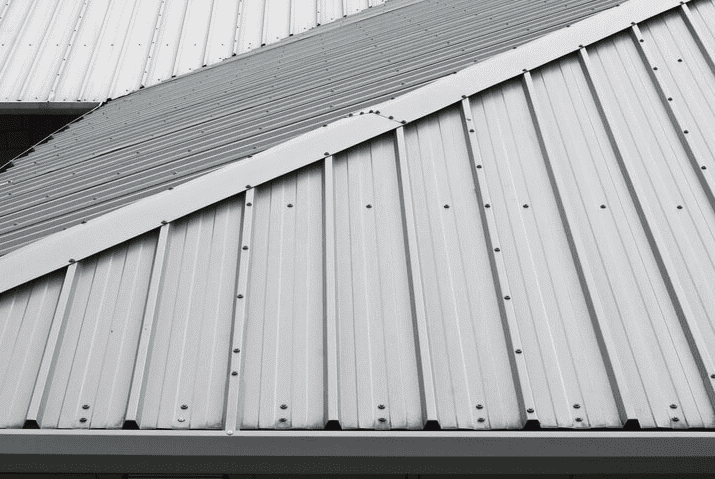Metal Roofing Replacement & Repair

Benefits of Metal Roofing
- Long-lasting durability: You can expect your metal roof to last much longer than other materials.
- Streamlined installation: Metal panels are much lighter than other roofing types, making them easier to handle and install.
- Minimum roof pitch requirements: Regardless of the structure’s slope, you can install a metal roof.
- Maximum protection against the elements: Metal roofs are ideal for all the rain and snow in Northern Virginia because they’re less likely to develop ice dams.
- High energy efficiency: They’re reflective for minimal heat transfer to your attic.
- Environmental friendliness: When it’s time to replace your roof, metal panels are 100% recyclable.
- Moss- and fungus-proof: You won’t have to worry about mold, mildew, and the resulting damage from moss and fungus.
- Fire resistance: Metal roofs are Class A fire-rated.
Types of Metal Roofs CCI Replaces & Repairs





New Metal Roof Installation Costs
Choose CCI as Your Local Metal Roofing Contractor
Frequently Asked Questions
How long does metal roofing last?
A metal roof typically lasts between 40 to 70 years. Compare this to the shorter life span of asphalt shingles, which typically last 15 to 30 years.
Concrete tile roofs are similarly long-lasting, with a life span of up to 50 years.
Are metal roofs noisy when it rains or hails?
The noise you might associate with a metal-roofed barn, shed, or garage is different from what you should expect from a commercial or residential metal roof.
The roof deck, underlayment, and insulation greatly reduce the noise between the metal roof itself and your property’s interior, so they’re not any noisier than other roofing materials.
Will a metal roof rust?
Some metal roofing types, like aluminum, are naturally rust-resistant. Other types of metal roofing are more susceptible to rust over long periods, such as steel roofing.
Rust-resistant finishes and coatings and routine roof maintenance prevent rust from occurring. Your roofing contractor will ensure proper installation and address any scratches on your roof to prevent weak spots.
Do metal roofs attract heat and increase indoor temperatures and energy costs?
A metal roof generally decreases energy costs compared to other roofing materials by reducing the heat that enters your home. It achieves this through reflectivity and emissivity, which lowers your property’s heating and cooling load for a more comfortable home with less strain on your HVAC systems.
What are the differences between standing seam, corrugated, and shingle metal roofing?
Standing seam and corrugated roofs are made of metal panels fabricated similarly. However, standing seam is a higher quality design with stronger metal, leak-resistance fastening, and easier maintenance. Corrugated roofing is more common in commercial applications.
On the other hand, metal shingles are an alternative to asphalt and slate shingles, offering many of the benefits of metal roofing with the look of a more traditional residential roof.
What are the pros and cons of different metal roof types?
While all metal roofs are a great investment, each material offers different strengths and weaknesses to consider:
- Steel roofing is the most common metal roofing material. It’s low-maintenance, fire-resistant, and incredibly durable. However, it is heavier and less corrosion-resistant than copper and aluminum.
- Copper roofing is the longest-lasting metal roofing option with a strikingly beautiful and unique appearance. However, it is the most expensive option and isn’t as widely available as other metal roofing types.
- Aluminum roofing is lightweight and corrosion-resistant, though there is less demand, so color options are limited.



